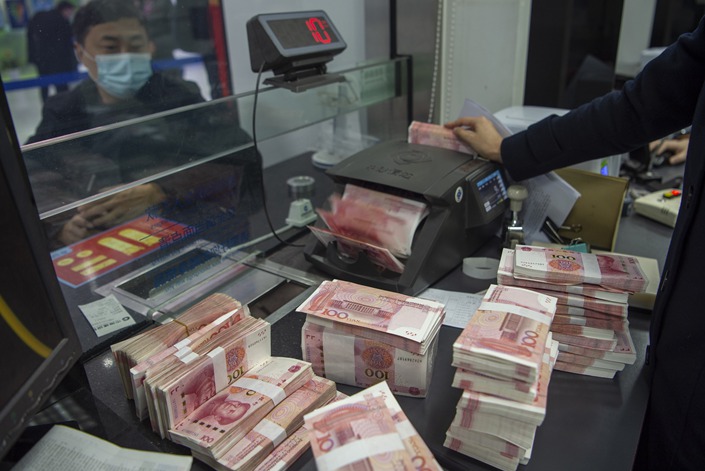
Chinese households are desperately trying to bolster their savings, while also racing to repay loans, indicating that their balance sheets have been impaired and are in urgent need of fixing.
This has been a prominent economic phenomenon in China over the past year and an in-depth analysis may help find the key to reviving the economy.
Let’s start with savings. The balance of Chinese household savings surged by 17.84 trillion yuan ($2.6 trillion), or 17.4% year-on-year, to 120.3 trillion yuan at the end of 2022, logging the fastest annual growth since the 2008 global financial crisis.
When households’ savings rise at a faster pace than usual year-on-year while their disposable income grows normally, it often means a decline in consumption or investment or both. It appears that 2022 was just such a year. Not only was investment unprofitable, but consumer spending was also greatly restricted due to the Covid-19 pandemic, making it inevitable that household savings soared.
But this is an oversimplification and just a general theory. The reality was far more complicated.
For example, the assumption that disposable household income grows at a normal pace did not hold true. According to the National Bureau of Statistics, the disposable income of Chinese households grew 5% in 2022 in nominal terms, far below the normal level of 9%. The sharp fall in disposable income growth serves as an important indicator of the damage inflicted on households’ balance sheets.
Income generated from assets forms part of households’ disposable income, which performed poorly in 2022. This can be seen from the performance of capital markets and the real estate sector.
For example, the total market value of A-share companies listed on the Shanghai and Shenzhen exchanges plunged from 91.6 trillion yuan at the beginning of 2022 to a low of 74 trillion yuan in October, shrinking by as much as 17.6 trillion yuan. All kinds of asset management products generally underperformed. Meanwhile, housing prices continued to plummet amid a property downturn and expectations. Amid the sluggish markets, average investors transferred money into the banking system, much of it into fixed-term deposits.
Another part of household disposable income is derived from salaries, accounting for 55.8% of the total in 2022. The job market floundered in the pandemic as businesses struggled with an economic slowdown, with some forced to close permanently. Household income shrank and future expectations dimmed, leading to a strong desire to save.
Read more In Depth: Behind the Massive Sell-Off in Chinese Wealth Management Products
By increasing deposits, households built up their assets, but they were also busy on the liability side of things. Residents took on fewer new loans and even opted to prepay their loans.
The balance of household loans from financial institutions grew rapidly from just 3.16 trillion yuan in 2005 to 74.9 trillion last year, an average annual growth of 20.3%. But there was one year that the rate came in below 10%, which was 5.4% in 2022. It was not only significantly lower than the average annual growth rate, but also nearly 7 percentage points below that in 2021, which ranked the second-lowest.
Companies and governments have also taken a hit on their balance sheets. In the post-Covid era, businesses are reluctant to expand investment, while local governments are under great pressure to repay existing debts and borrow more. Therefore, it is crucial to repair the damaged balance sheets in order to shore up the economy.
But how can it be done? I propose three measures. The most direct and effective measure would be to reduce borrowing costs. Currently the weighted average reserve requirement ratio for banks stands at 7.8%, which could be lowered by 1 to 2 percentage points this year. Rates including the benchmark loan prime rates can be cut further.
Second, the government can hand out 1 trillion yuan in cash and consumption vouchers, which will significantly lift households’ confidence, improve their balance sheets and boost consumption.
Third, regulators can roll out a slew of measures to bolster capital markets and stabilize the property sector, including further lowering down payment ratios and mortgage rates, and gradually dropping home purchase restrictions.
Gao Zhanjun is a senior research fellow at the National Institution for Finance and Development.
This article has been edited for length and clarity.
Contact translator Zhang Ziyu (ziyuzhang@caixin.com)
The views and opinions expressed in this opinion section are those of the authors and do not necessarily reflect the editorial positions of Caixin Media.
If you would like to write an opinion for Caixin Global, please send your ideas or finished opinions to our email: opinionen@caixin.com
Get our weekly free Must-Read newsletter.







